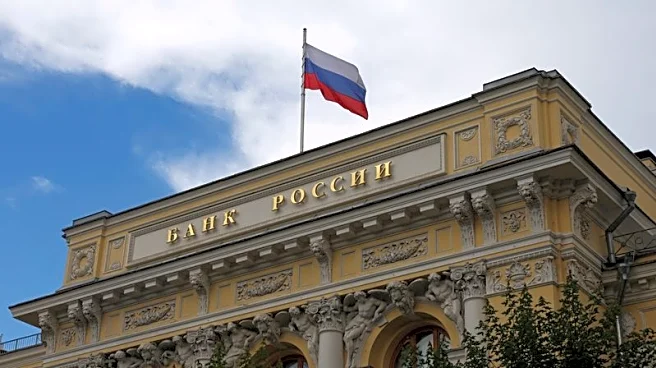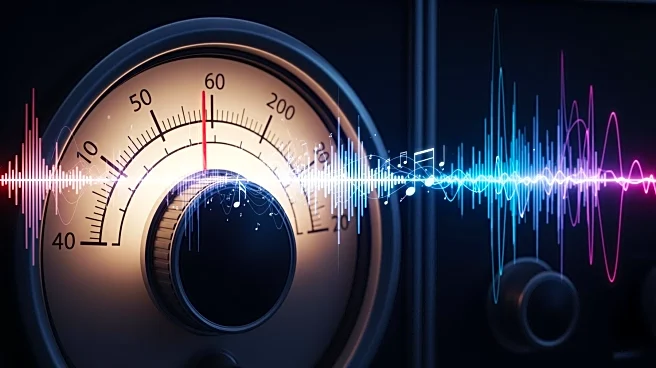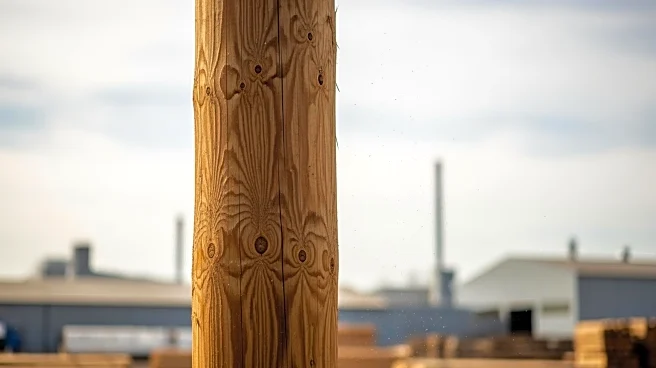By Elena Fabrichnaya and Gleb Bryanski
MOSCOW (Reuters) -The Russian central bank cut its interest rate by 50 basis points to 16.5% at a board meeting on Friday, its first since the government proposed
raising VAT in 2026 and U.S. President Donald Trump imposed sanctions on Russian oil companies.
The decision was in line with economists' median forecast in a Reuters poll.
However, the central bank also raised its 2026 inflation forecast to between 4% and 5% from 4% previously, partly due to the tax hike, and increased its average interest rate estimate for 2026 to between 13% and 15% from between 12% and 13% before.
"This is a much more negative development than the symbolic 0.5 percentage point rate cut is positive," said economist Evgeny Kogan. The rouble rose by 0.7% against the U.S. dollar after the board meeting.
ONE-OFF FACTORS BLAMED FOR RECENT INFLATION RISE
"The current inflationary pressures will temporarily increase in late 2025 and early 2026 because of a number of factors, including price adjustments and the reaction of inflation expectations to the upcoming VAT rise," the central bank said in a statement.
The bank, under pressure from business lobbies to cut rates faster, did not explain in its statement the rationale for cutting the key rate despite rising inflationary pressure.
Russian businesses say they need interest rates at around 12% to 14% for investment and economic growth to resume.
The bank also adjusted its 2025 inflation forecast to between 6.5% and 7% from between 6% and 7% before. Russia's weekly inflation, an important gauge for the bank, has been above 0.2% for the past three weeks.
Cumulative inflation since the start of the year had reached almost 5% by October 20. On an annual basis, it rose to 8.14% in the latest week.
Prices for gasoline, which the central bank called a "marker" commodity important for people's inflationary expectations, have risen by 11.6% since the start of the year due to recent Ukrainian attacks on Russian refineries.
"The current price growth acceleration was substantially affected by one-off factors. They include increased motor fuel prices and a faster-than-usual rise in fruit and vegetable prices in the autumn months," the central bank said. The latest data on households' inflation expectations showed that people see inflation at 12.6% in one year's time.
SIGNIFICANT UNCERTAINTY FACTOR
Trump on Wednesday imposed Ukraine-related sanctions on Russia for the first time in his second term, targeting oil companies Lukoil and Rosneft, which account for half of Russia's oil production.
The measure comes as Russian economic growth is set to slow sharply to about 1% in 2025 from 4.3% last year, high interest rates are hindering investment, and the government has had to hike taxes to balance next year's budget.
"Geopolitical tensions remain a significant uncertainty factor," the central bank said. It cut its forecast for Russia's exports to a fall of up to 3% in 2025 from a fall of up to 1% before.
President Vladimir Putin conceded on Thursday that the new U.S. sanctions were of a "serious nature" and would lead to "certain losses", but that they would not have a significant impact on Russia's economic wellbeing.
The central bank cut its key interest rate by 100 basis points to 17% at its last board meeting on September 12 - less than analysts had expected - citing stubbornly high inflation.
Since then, the finance ministry has proposed raising the value-added tax rate to 22% from 20% in 2026 to help curb the budget deficit, a move seen as adding up to one percentage point to inflation in 2026.
(Reporting by Elena Fabrichnaya and Gleb Bryanski. Editing by Mark Trevelyan and Mark Potter)









